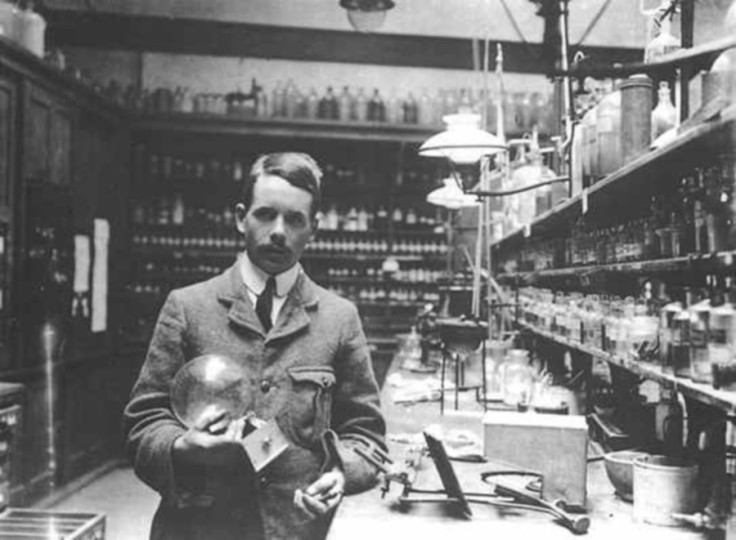Scientists call for new element to be named after physicist Henry Moseley killed in WWI

An esteemed group of scientists are calling for one of new four new chemical elements to be named after a "brilliant" physicist who died in the infamous Gallipoli campaign during the First World War. The revered Henry Moseley was killed by a sniper at the age of 27 as he operated a field telephone on 10 August 1915.
Now, more than 100 years after his death, the six scientists – which include Sir John Meurig Thomas, former director of the Royal Institution – have led the charge to name one of the newly discovered elements after Moseley.
The Weymouth-born pioneer had volunteered for the army a few years after solving a niggling scientific anomaly. At the time scientists were mulling over the periodic table – they had all the known elements in order and grouped according to their chemical properties and behaviour. But they did not know what the source of the table's pattern was. The elements roughly followed from the lightest to heaviest, but like an unfinished jigsaw, some of the placed elements fitted better in different positions.
Moseley used electron gun apparatus he built himself to establish the "atomic number" that corresponds to how many protons (positively charged subatomic particles) an element has. This discovery unmasked a baffling part of chemistry that may have earned him a Nobel Prize – had he had stayed alive long enough.

His death led another renowned physicist Ernest Rutherford to campaign for scientists to never again be sent to fight in wars, says the Times. Sixty years later, the science-fiction writer Isaac Asimov said Moseley's death, "might well have been the most costly single death of the war to mankind generally".
The newspaper recorded Moseley's death under the headline "A Brilliant Physicist" writing that, in the words of the Nobel laureate Robert Millikan, his discovery "threw open the windows through which we could glimpse the subatomic world with a definiteness and certainty never dreamt of before".
On 30 December 2015 four new elements – known by their atomic numbers 113, 115, 117 and 118 – were discovered by scientists in Japan, Russia and the US. They are the first molecules to be added to the table since 2011, when elements 114 and 116 were added. Scientists are now tasked with naming them.
© Copyright IBTimes 2025. All rights reserved.






















